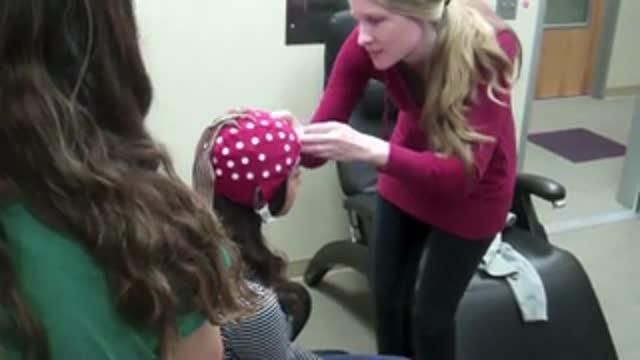A recent study from the Center for Mind and Brain at the University of California, Davis makes a bold conjecture; that our ability to make choices — and sometimes mistakes — might arise from random fluctuations in the brain's background electrical noise.
The brain has a normal level of 'background noise', says Jesse Bengson, a postdoctoral researcher at the center and first author on the paper.
As electrical activity patterns fluctuate across the brain, decisions can be predicted based on the pattern of brain activity immediately before a decision was made.
Bengson sat volunteers in front of a screen and told them to fix their attention on the center, while using electroencephalography, or EEG, to record their brains' electrical activity. The volunteers were instructed to make a decision to look either to the left or to the right when a cue symbol appeared on screen, and then to report their decision.
The cue to look left or right appeared at random intervals, so the volunteers could not consciously or unconsciously prepare for it. The researchers found that the pattern of activity in the second or so before the cue symbol appeared — before the volunteers could know they were going to make a decision — could predict the likely outcome of the decision.

UC Davis researchers found that the pattern of electrical activity in the brain immediately before making a decision can predict the choice made. This video shows how these experiments are set up. Credit: Andy Fell, UC Davis
"The state of the brain right before presentation of the cue determines whether you will attend to the left or to the right," Bengson said.
The experiment builds on a famous 1970s experiment by Benjamin Libet, a psychologist at UCSF who was later affiliated with the UC Davis Center for Neuroscience.
Libet also measured brain electrical activity immediately before a volunteer made a decision to press a switch in response to a visual signal. He found brain activity immediately before the volunteer reported deciding to press the switch.
The new results build on Libet's finding, because they provide a model for how brain activity could precede decision, Bengson said. Additionally, Libet had to rely on when volunteers said they made their decision. In the new experiment, the random timing means that "we know people aren't making the decision in advance," Bengson said.
Libet's experiment raised questions of free will — if our brain is preparing to act before we know we are going to act, how do we make a conscious decision to act? The new work, though, shows how "brain noise" might actually create the opening for free will, Bengson said.
"It inserts a random effect that allows us to be freed from simple cause and effect," he said.
Published in the Journal of Cognitive Neuroscience. Source: University of California - Davis





Comments